News
16 February 2022
Lack of housing supply and rising mortgage interest rates threaten the owner-occupier market
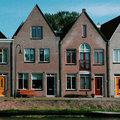
Insufficient supply of new and existing owner-occupied homes is the main reason for the once again enormous rise in house prices in the fourth quarter of 2021. A declining number of house sales and increasing numbers of first-time buyers and middle-income households being sidelined were the first signals of a change in the housing market. The threat of a further rise in mortgage interest rates has now been added to this.
14 February 2022
Students design Museum van Marken for Delft
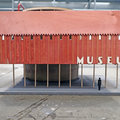
Jacques Van Marken was the founder of the Delft factories Calvé, Gist-Brocades and DSM. He was the first industrialist to build a green factory district for the employees, the Agnetapark. Van Marken was an extremely social entrepreneur who also arranged accident and health insurance for his staff, which was almost unheard of at the time. 30 students submitted models of their vision of an imaginary museum for someone who was of great importance to the city of Delft.
02 February 2022
Bouwflix – Experience the construction site digitally
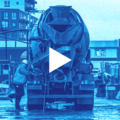
Teachers, students and construction practitioners experience a gap between the architect at the desk and the craftsman/woman on the construction site. The novice architect has a great gap between theoretical knowledge and practical knowledge that is applied on the construction site, and therefore finds it difficult to maintain himself in contact with contractors and foremen.
01 February 2022
Climate Migration and Real Estate investments
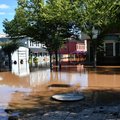
Climate migration, or the movement of people due to environmental changes, is expected to grow as the climate changes. The Internal Displacement Monitoring Centre projects that 14 million people could be displaced annually by disasters, for example. Where will people leave, and where will they go – and why? How can we, as a society, manage this change in an equitable way?
25 January 2022
Circular water stories worldwide
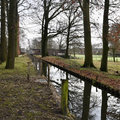
Throughout the world, people have transformed natural water flows into ingenious and controlled water systems, creating impressive cultural and urban landscapes. Traditional water systems are comprehensive systems that are closely linked to the existing landscape, the people -who inhabit and work the landscape-, the animals and plants.
12 January 2022
Housing crisis and housing concepts for senior citizens
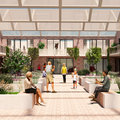
Recently, the role of elderly residents in the housing crisis is hotly debated in the Netherlands. Undoubtedly, more housing would become available if elderly residents would (or could) move to a smaller dwelling. But what do they actually aspire to? What are their housing needs and dilemmas? How can new housing concepts based on sharing and collectivity contribute to the solution? And how can these homes be developed and designed to match the needs of seniors?
21 December 2021
Hydrogen rocks - possibilities of hydrogen in the global energy transition

An open access book discusses the possibilities of hydrogen in a global renewable energy transition and the position of the Netherlands in a variety of points of interest such as: technology, areas of application, geopolitics, social aspects and the hydrogen economy. (Im)possibilities of hydrogen have been examined across the board, and in particular what it could mean for the Netherlands and Europe.
21 December 2021
NWO grant for WEF project South Africa
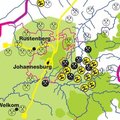
Gaining more insight into the intertwined history of the water-energy-food-nexsus (WEF) in the former mining landscape in South Africa is necessary to stimulate future sustainable spatial developments. The NWO grant for a new project is intended to establish a learning environment which theory and methods are developed in order to analyse and understand spatial dynamics and long-term interactions between water, energy and food. The expected results will contribute to a sustainable vision on the redevelopment of extraction landscapes after mining in general and in South Africa more specific.
20 December 2021
Quantitative data collaborative housing
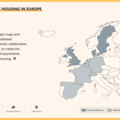
Quantitative data on collaborative housing are currently scattered or even only available upon request, and lack standard definitions. This prevents a comparative understanding of the challenges and opportunities that these housing forms offer. Furthermore, comparative data are needed to facilitate mutual learning and communication amongst users across countries and regions.
16 December 2021
Thesis award for 3D reconstruction of simplified 3D building models
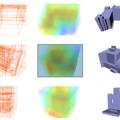
Obtaining 3D models of buildings is crucial to many urban applications (such as urban planning, solar potential analysis, urban flow simulation), which is still an open problem in remote sensing and the related fields. Existing techniques require high-quality laser scans as input, which imposes challenges to data acquisition. Besides, the building models in the existing platforms (such as Google Earth) are represented by millions of triangles. Such a representation is not friendly for the subsequent processing and application.